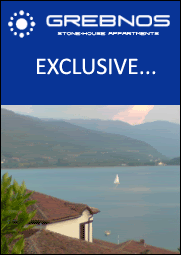THE ECONOMIST COLUMN ON MACEDONIAN NAME ISSUE MOST COMMENTED EVER

National.
This column's recent attempt to look at the name dispute between Greece and its northern neighbour (FYROM to the Greeks, Macedonia to the locals) became the most-commented article ever to appear on the website, reads "The Economist".
According to the newspaper, the Greek case (crudely stated) is that Macedonia is a title properly belonging a) to ancient Macedonia and b) to the northern Greek province that bears that name. Communist Yugoslavia applied the label to its southern province as a provocation, in the aftermath of the Greek civil war. If it were to accept "Macedonia" as a name for the former Yugoslav republic, Greece would legitimise that communist name-grab and lay itself open to territorial claims, or even terrorism. It stubbornly refuses to allow its northern neighbour’'s application for European Union and NATO membership to proceed until it budges on the name issue.
Assume Greece's argument is right. Would it matter? The globe is studded with ancient, buried hatchets involving names and places (which came first: Bretagne or Grande-Bretagne? Who cares?) Logically preposterous toponyms are the rule, not intolerable exceptions. So set aside that argument, unless you are trying to drum up business for map publishers.
Nor does the argument about dangerous irredentism stand up. As a relatively big country, and a member of the EU and NATO, Greece can scarcely plead persecution from its small northern neighbour. The last 20 years show that expanding the EU and NATO is the best way of making troubled neighbourhoods safer. But even if there is a danger of terrorism from Skopjean extremists, how should it be contained? By including Macedonia in western clubs, prosperous and, with luck, well governed? Or by keeping it weak, divided and isolated?
So even if the Greeks are right, the course of action looks wrong. What of the Macedonian/FYROM side? Assume its most hardline protagonists are right: that they are the heirs to an ancient civilisation, whereas Greece is an ethno-nationalist bully with fascist undertones that oppresses a Slavic minority in the north. If that's true, then the EU and others ought to be more worried than they are. But it has little bearing on the name of the northern neighbour.
On that basis, the verdict is clear. If the Skopje authorities are right, then withholding recognition of their name is an outrage. If they are wrong, even if they are silly and provocative, it is not worth breaking eggshells to set them right. Giving them their favoured name costs less than Greece claims, and has big benefits, for everyone, in increased stability, concludes "The Economist".
[Idividi]


























As usual with this dispute, the author writes with a thinly veiled dismissive contempt for the issues and peoples involved. And, as usual, the same specious excuses are trotted out which, in effect, are attempts to justify the arguments of FYROM, all the while seemingly coached in a false veil of objectivity.
To briefly recapitulate some parts of this article:
Bretagne-Grande Bretagne - I seriously doubt that either side of this issue ever published maps incorporating the other into its political borders. I seriously doubt that false history was ever elevated to the level of official state propaganda to be plastered throughout the country and taught in the schools.
Threat of violence - Again, the author takes the low road and only considers this in the light of full-scale, armed conflict between two independent states. Any terrorist will tell you that it does not require a fully mobilized army of tens of thousands to detonate a few well-placed bombs or launch similar terrorist attacks. Given the dependence of Greece on tourism, what better way to impact its national economy than to scare off most of the tourist trade?
There is the issue of confusion over the origin of exported products - Makedonia (made in Greece or made in FYROM)?
And, in conclusion, the assumption of the name of Makedonia by the government in Skopje is just historically inaccurate - and everyone knows that.
Over the years, I have seen far too many outside, third parties, all too eagerly weigh in with their opinions - mostly uninformed and nothing more than propagandistic bombast initiated in and left over from the "Cold War" years.
What really angers me is that incredibly naive and simplistic bit of tripe: "Any country should be able to call itself what it wants." Some people wholly lack the intellectual capacity to understand the subtext of the surface issues.
Tito began this mess and it is FYROM which continues it - let us get straight who the actual falsifiers and belligerents are.
Posted by Anonymous |
21:40
Anonymous |
21:40
Post a Comment